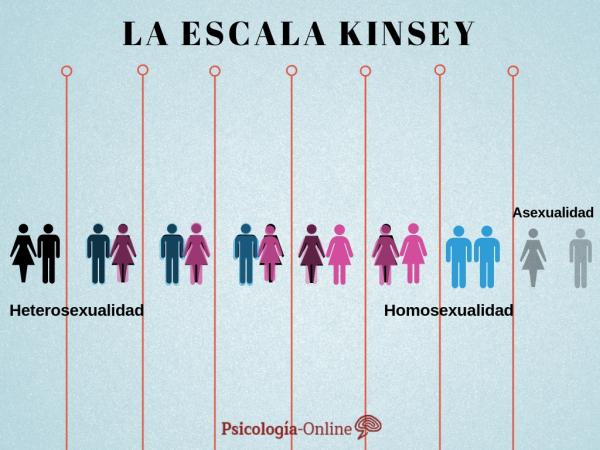If your partner exhausts you psychologically, it may be due to irreconcilable differences in the way you view life, a question of unrequited roles and expectations, or a toxic dynamic. We have all heard the expression “it exhausts me psychologically” in the context of a relationship. And sometimes, being in a relationship can cause significant emotional wear and tear that can affect our mental health.
In this PsychologyFor article, we explain why my partner exhausts me psychologically and what to do Discover the consequences of this behavior and some practical tips to deal with this situation. If you feel identified with this situation, keep reading to obtain tools to help you recover your emotional well-being.
Why does my partner exhaust me psychologically?
Romantic relationships can be a source of happiness and personal growth, but they can also have negative effects on our emotional health. Sometimes, the person we love can become a psychological and emotional burden that exhausts us. Feeling drained by our partner is a painful and draining experience, but why does everything about my partner irritate me?
There are various causes that can cause your partner to exhaust you psychologically. In some cases, it may be an issue of incompatible personalities or irreconcilable differences in the way of seeing life and relationships.
In other cases, it may be a matter of unrequited roles and expectations , in which one of the members of the couple feels that they give more than they receive. It may also be the result of a toxic and unbalanced dynamic in which one party exercises excessive or manipulative control over the other. In this case, in this article you will see How to act with a manipulative partner.
If you say “I feel sad with my partner”, the causes could be many. It is important to identify them in order to address the problem effectively and prevent your emotional health and the relationship from being affected.
Consequences of your partner exhausting you psychologically
If you feel that your partner is stressing you out a lot, it may be because it causes psychological exhaustion in a relationship, which leads to the following negative consequences for your emotional and mental well-being:
- Low self-esteem: If you are constantly subjected to criticism, contempt or belittlement from your partner, your self-esteem can be significantly affected. When you are the target of this type of behavior, you may begin to doubt your own value, feel inferior, and psychologically exhausted.
- Emotional problems: Constant psychological exhaustion can generate high levels of stress and anxiety in your life. Emotional pressure, constant arguments, and the feeling of being trapped in an exhausting dynamic can cause symptoms such as irritability, constant worry, and difficulty relaxing. It is important that you are aware of the emotions you feel in order to take care of yourself.
- Social isolation: A partner who drains you psychologically can interfere with your social relationships and restrict your access to social support. You may feel alienated from friends and family, making you feel increasingly isolated and dependent on your emotionally draining partner. In this article we analyze the Consequences of social isolation.
- Lack of trust: If you have been subjected to constant control and emotional manipulation, you may lose confidence in yourself and others. If you are psychologically exhausted by your partner, you may doubt your own skills, judgment, and decision-making ability. Additionally, you may feel insecure about your own emotions and thoughts.
- Physical health problems: Psychological exhaustion can have repercussions on your physical health. The chronic stress associated with a draining relationship can weaken your immune system, increase your risk of illness, and affect your overall well-being.
What to do if my partner exhausts me psychologically
If in the situation of “my partner exhausts me psychologically”, it is important to take measures to protect your emotional well-being. Here are some tips that can help you:
- Face the situation: Become aware that your relationship is negatively affecting your mental and emotional health. Recognize that you deserve to have a healthy relationship and that you are not obligated to tolerate exhausting treatment. Analyze how long you have felt this way and what has changed to put you in this situation.
- Talk to your partner: If your partner is emotionally draining you, it’s important to have an honest conversation with them. Explain how you feel and what is bothering you. Sometimes simply talking about the problem can relieve tension.
- Set limits: Make it clear what you are willing to accept in the relationship. Communicate your needs and expectations assertively. Make sure your boundaries are respected and don’t be afraid to say “no” when necessary. In this article you will see How to set limits in relationships.
- Take care of yourself: put your emotional and mental well-being, the first thing is that you dedicate time to activities that make you feel good and help you recover. Take care of your physical health through healthy eating, regular exercise and adequate rest.
- Seek support: Talk to trusted friends and family about what you are experiencing. You can also seek professional help if you feel you need to talk to someone who is not involved in the situation.
- Consider couples or individual therapy: If you feel there is still hope for improving the relationship, you can explore couples therapy as an option to address issues and work on communication. If the relationship is toxic or showing no signs of improvement, individual therapy may help you develop skills to manage the situation and make decisions that promote your well-being.
- Evaluate your options: Reflect on whether the relationship is really healthy and satisfying for you. Consider whether there are recurring patterns of psychological exhaustion and whether these can change in the long term. Sometimes, it may be necessary to make the decision to end the relationship to preserve your mental and emotional health.
- Practice self-compassion: Realize that you are not responsible for your partner’s emotions and that it is important to take care of yourself. Practice self-compassion and be kind to yourself.
This article is merely informative, at PsychologyFor we do not have the power to make a diagnosis or recommend a treatment. We invite you to go to a psychologist to treat your particular case.
If you want to read more articles similar to Why my partner exhausts me psychologically and what to do we recommend that you enter our Couples Therapy category.
Bibliography
- Karakurt, G. (2012). The Interplay Between Self Esteem, Feeling of Inadequacy, Dependency, and Romantic Jealousy as a Function of Attachment Processes Among Turkish College Students. Contemporary Family Therapy, 34(3), 334-345. https://doi.org/10.1007/s10591-012-9185-7
- Villavicencio, CE, & Jaramillo, JL (2020). Emotional wear and tear in the emotional coexistence of a couple. Academy, 7(1), 58-66. https://doi.org/10.30545/academo.2020.jan-jun.









